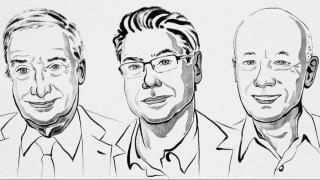The awarding of the Nobel Prize in Economics to professors Joel Mokyr, Philippe Aghion y Peter Howitt recognizes (as happened in 2024 with the winners Daron Acemoglu, Simon Johnson y James Robinson) his defense of an open, democratic and diverse society as a basic condition for human progress.
What the works of this year’s winners maintain is that innovation is not possible (let alone the pace at which today’s society innovates) if the social conditions in which it emerges and is implemented do not stimulate it. Creation destroys the status of everything that precedes it and, consequently, It is only possible for it to develop and materialize if the society is democratic and its rules recognize and respect the right to change.
The improvement of living conditions and the technical and scientific progress that they allow (although reality so ruthlessly denies it on too many occasions) are purposes to which economic exchange and consumption contribute.. Innovation requires that those who are left behind, in their service or price offering, accept the rules of the game. Win and lose.
But it doesn’t seem enough. What I would ask this year’s Nobel Prize winners is: innovation, for what?
Economist Daron Acemoglu, at the headquarters of the BBVA Foundation in Madrid.
Of course, modern and contemporary society has innovated and continues to do so, at increasing speed. But progress (and this is where I believe this year’s Nobel Prize in Economics is connected to that of 2024) requires that the society to which it is applied is open to change, facilitates its transmission and universalizes it.
Or what is the same, redistribute it.
It is necessary that the latent surplus value of innovative processes be redistributed into social well-being.
Societies refractory to change generate less well-being for their citizens. Innovation as an economic engine, as an accelerator of progress, is surely a necessary condition for there to be evolution, but, like the generation of wealth, it is worth little if it only rewards the capital that promotes it. If not redistributed.
Melinda Frenchfamous American philanthropist and leading shareholder in Microsoft, declared a few years ago, in the context of post-pandemic society, that “giving away money that your family will never need is not a particularly noble act”, but rather a way to stay connected to the world.
Innovation generates wealth and probably without it our well-being options would not be within our reach. Although it is true that all innovations, when they help us say goodbye to the past and what is apparently inefficient, require that the conditions for their social redistribution be real and help them impact all citizens.
Returning to the phrase of the American philanthropist, For innovation to impact us, its benefits (in the form of use, replication or capital wealth) must be available to everyone.
“Innovation as an economic engine is a necessary condition for progress, but, like the generation of wealth, it is worth little if it is not redistributed”
If we look back and think about the latest great technological progress in our society, I still ask myself the same thing: if the only incentive for innovation is its ability to be commercialized, the guarantee that it will impact well-being and citizen rights is low.
The new Nobel Prize winners, Professors Aghion and Howitt, state this: social mobility requires that innovation allows all segments to take advantage of advances. Our society does not guarantee well-being, but rather sells it.
The transfer of innovation, its impact on society, requires that in addition to being open to change and the game of triumph and defeat, society is impregnated with communication.
The agents of change (inventors, entrepreneurs, companies, research centers, etc.) have an objective in themselves in commercialization: to get rich. But enrichment is a consequence and not a means.

In a world where more than 50 percent of the wealth is in the hands of 1 percent of the population, it is clear that the consequences of innovation have not been shared.
Inequality threatens innovation. A society that does not benefit from innovation to redistribute the well-being (gross wealth) it generates equitably is doomed to destroy change. Or, what is the same, the key conditions for its production: democracy.
Therefore, if the prosperity of society requires more democratic, representative and free states and societies, innovation as an engine of change requires that its benefits not be concentrated in so few hands.
As a society we have to avoid what the American writer Don De Lillo he denounced in his novel Zero K: “I thought about the moments when utilitarianism becomes totalitarianism.” Avoiding it transcends the rules of the market.
*** Alberte Santos is founder and CEO of Evercom.
The post inequality threatens innovation appeared first on Veritas News.
